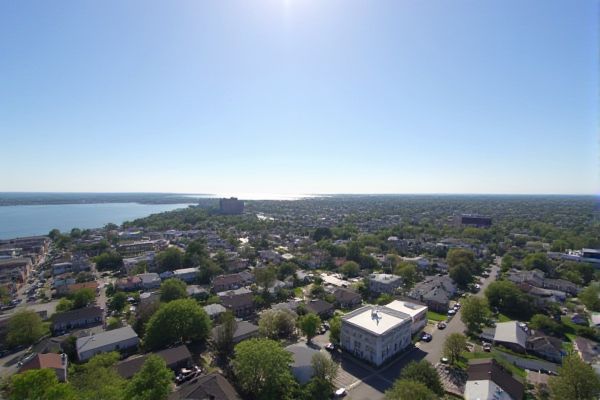
Insights from Rhode Island residents and expatriate communities: Vibrant arts and cultural scene. Emphasis on local seafood cuisine. Strong community support networks. Seasonal weather variations. High cost of living. Access to quality education institutions. Historic architecture and landmarks. Robust healthcare facilities. Traffic congestion in urban areas. Proximity to coastal recreation.
Vibrant arts and cultural scene.
Rhode Island's vibrant arts and cultural scene is highlighted by its prestigious institutions like the Rhode Island School of Design, numerous art festivals, and cultural events such as WaterFire, the Newport Mansions, and various ethnic festivals that celebrate the state's diverse heritage and creative expression. To explore more about the exciting activities and attractions in this dynamic region, you can visit the Visit Rhode Island website, which offers a comprehensive guide to tourism and culture in the area.
Emphasis on local seafood cuisine.
Rhode Island residents and expatriate communities place a strong emphasis on local seafood cuisine, celebrating the state's bounty of the sea with dishes like 'stuffies' (stuffed clams), clam cakes, and lobster rolls, reflecting a rich culinary identity shaped by coastal and cultural influences. Discover more about these delectable offerings by visiting the Culinary Delights of Rhode Island, where the flavors of the ocean and the innovation of local chefs come together to create an unforgettable gastronomic experience.
Strong community support networks.
Rhode Island residents benefit from strong community support networks through the Rhode Island Association of Community Action Agencies, which provides a wide range of programs including food, employment, housing, counseling, education, financial services, health, and senior services, all tailored to the specific needs of local communities. The Community Health Worker Association of Rhode Island fosters strong community connections through various networking events, support groups, and collaborative initiatives, enhancing policy discussions, health equity, and community support, particularly for Latinx and other marginalized communities.
Seasonal weather variations.
Rhode Island's seasonal weather is characterized by significant variability, with frequent passage of contrasting air masses leading to abrupt changes in temperature, moisture, and weather patterns. The state experiences cold winters with occasional intense nor'easters and warm summers, with temperatures varying significantly between coastal and inland areas. For a more detailed understanding of these climate patterns, visit the Climate Overview of Rhode Island page.
High cost of living.
Rhode Island residents face a high cost of living, with median rents significantly above the national average, high median home prices of around $465,000, and elevated costs for food, utilities, and transportation. These financial demands make it essential for individuals to earn around $85,000 to $100,000 annually for a comfortable lifestyle. For more detailed information, you can explore the Rhode Island Cost of Living that outlines these expenses comprehensively, helping residents understand and plan for these economic challenges.
Access to quality education institutions.
Rhode Island offers a robust higher education system, including the Community College of Rhode Island (CCRI), Rhode Island College (RIC), and the University of Rhode Island (URI), providing accessible and diverse educational opportunities that cater to various student needs, from associate degrees to professional and graduate programs. The state also features innovative community colleges and charter schools that enhance educational accessibility and choice. To explore these opportunities further, visit the Rhode Island Office of the Postsecondary Commissioner, which facilitates crucial information and guidance on these institutions.
Historic architecture and landmarks.
Rhode Island residents and visitors can explore a rich array of historic architecture and landmarks, including the RISD Museum, John Brown House Museum, Governor Henry Lippitt House Museum, and the Gilded Age mansions in Newport, showcasing the state's well-preserved American architecture and historical significance. For those eager to delve deeper, the Providence Historical Buildings Tour offers a self-guided exploration featuring landmarks like the Providence County Courthouse, Old Stone Bank, Governor Stephen Hopkins House, and the Old State House. This tour provides insights into the city's financial, educational, and governmental history through its well-preserved architectural heritage.
Robust healthcare facilities.
Rhode Island Hospital, a Level 1 Trauma Center and the principal teaching hospital of Brown University, provides comprehensive diagnostic and treatment services, including expertise in various medical specialties such as cancer, cardiology, and neurosciences, ensuring robust healthcare facilities for both local residents and expatriate communities. The hospital is part of the Lifespan network, now known as Brown University Health, which emphasizes top-quality patient care, medical education, and biomedical research in Southern New England.
Traffic congestion in urban areas.
Traffic congestion in urban areas of Providence has increased due to the Washington Bridge closure, prompting the city and RIDOT to implement signal timing changes, additional signage, and other measures to alleviate congestion and improve pedestrian safety. In South County, traffic congestion is manageable but noticeable, especially during peak summer months, with bottlenecks on highways like Route 4 and Route 1, and tips are provided for avoiding traffic by planning travel times and using alternate routes. The Rhode Island Congestion Management Process report highlights that congestion in urban areas, particularly on major interstates like I-95 and RI-146, is most severe during peak hours, and various strategies such as improving public transit and shaping development to reduce driving are being considered to mitigate congestion. For more information about the initiatives taken in response to the bridge closure, visit the Providence Impact Mitigation Response page.
Proximity to coastal recreation.
Rhode Island residents and expatriate communities appreciate the state's extensive coastline, with 400 miles of shoreline offering easy access to various beach activities, such as surfing, swimming, and sunbathing, all within a short drive from most locations. If you're considering a move, exploring the charm and amenities of this coastal state can be a rewarding experience, as detailed on The Honest Local.
